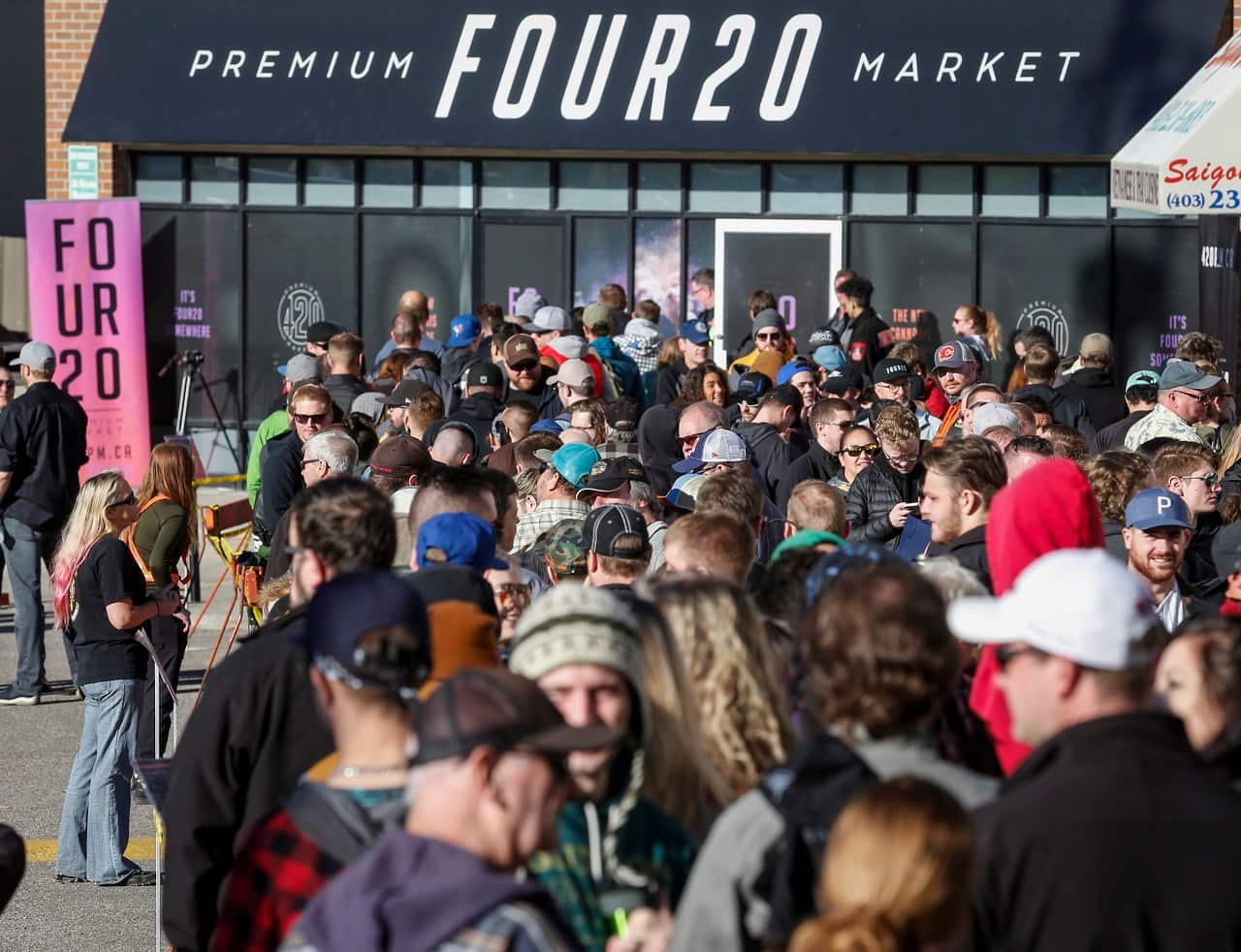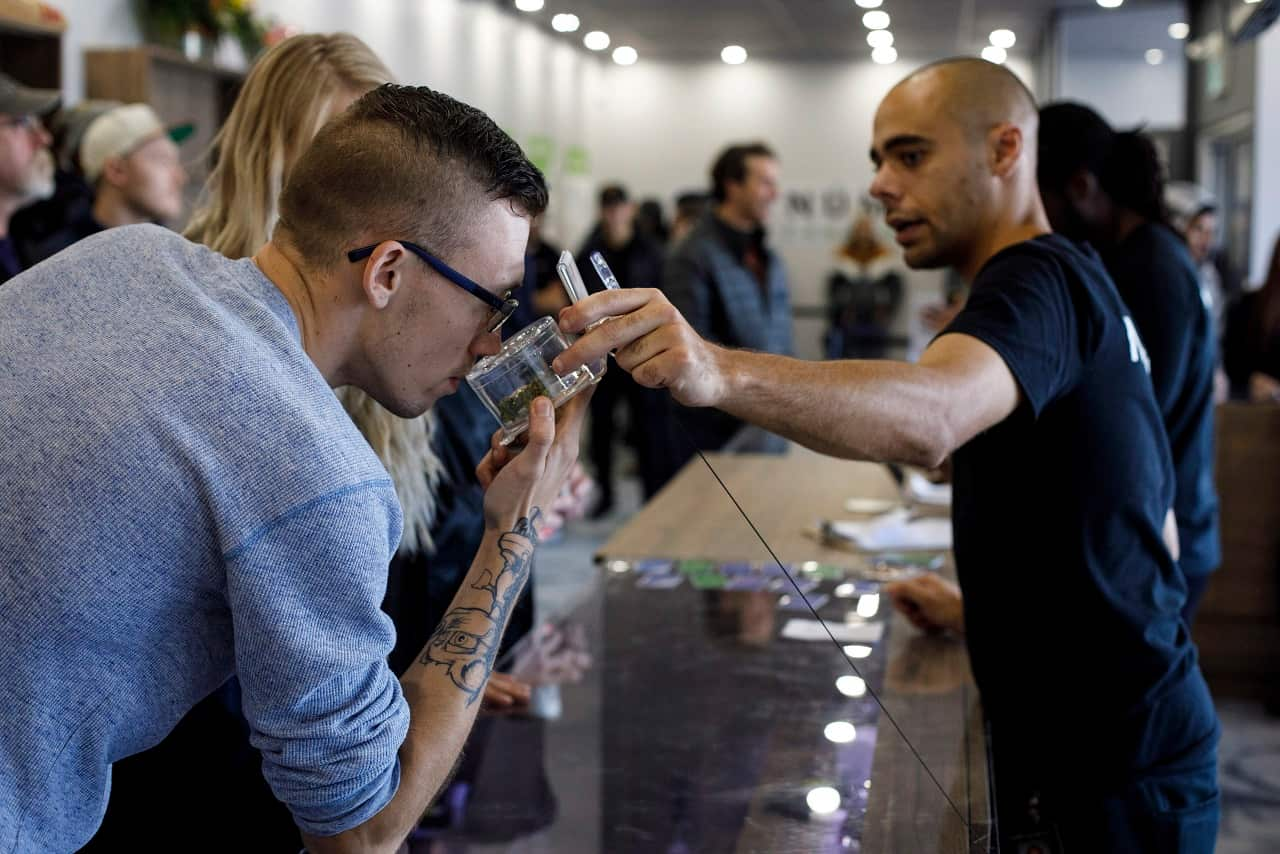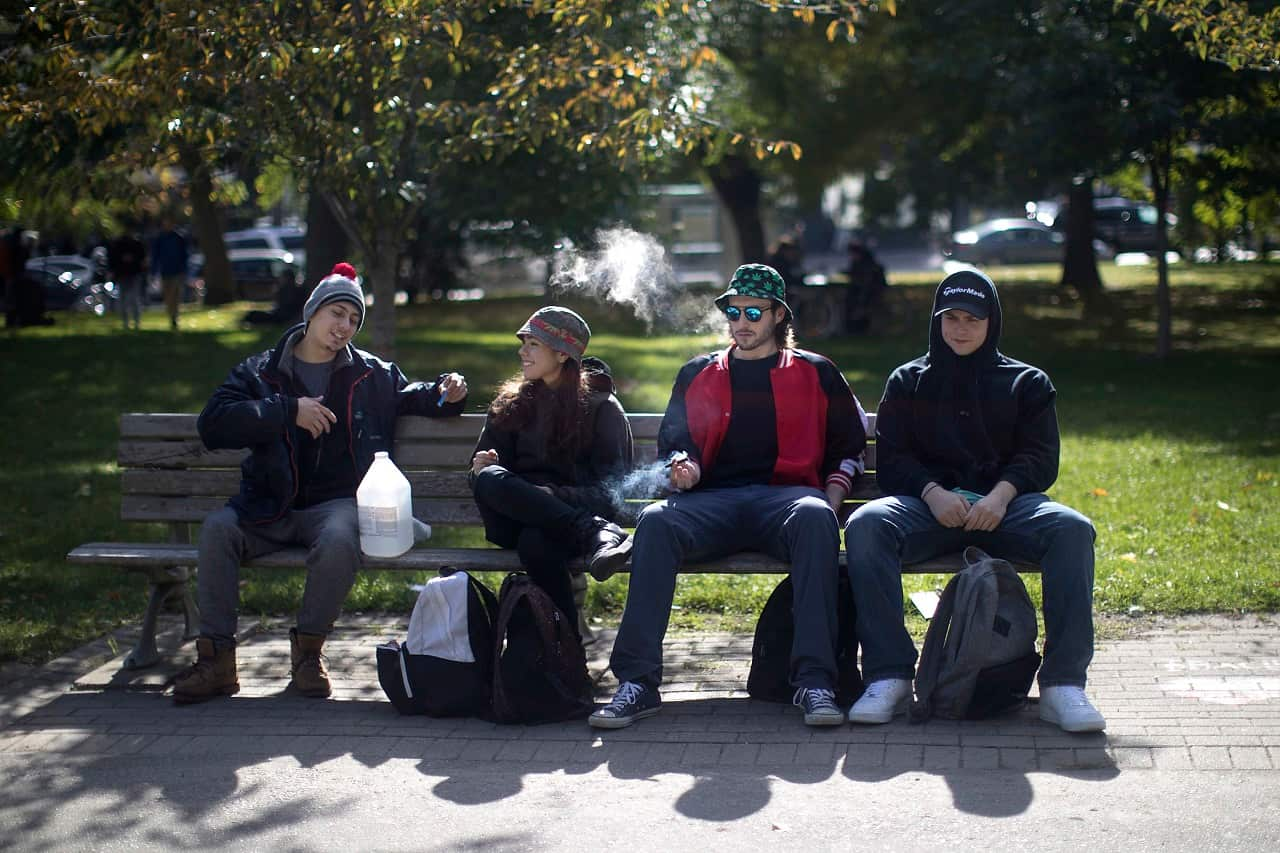Canada has become the first industrialised nation to legalise recreational cannabis, but a lawful buzz will be hard to come by in its biggest cities like Toronto and Vancouver, where stores are not yet open.
The day was historic for the country as Canadian adults can now legally smoke recreational marijuana after nearly a century-long ban.
But provinces and businesses have struggled to prepare, and legalisation was pushed back from a July start to enable setting up distribution and sales networks.

Despite the early problems, the move is a political win for Prime Minister Justin Trudeau, who vowed to legalise cannabis during his 2015 election campaign.
The pledge was aimed at taking profits away from organised crime and regulating the production, distribution and consumption of a product that millions of Canadians consume illegally.
"The prohibition on marijuana has not worked in this country," Trudeau told reporters in Ottawa.
"Young Canadians have the highest usage of marijuana anywhere in the world ... criminal organisations and street gangs make over $C6 billion a year on the sale of marijuana across the country... That needs to stop and that's exactly what we have done."

The federal government and many provinces have been cautious, starting with limited stores and products, including no edible cannabis products for a year, and tight control over supply.
In many parts of the country, particularly those with few stores, much of the legal sales action was online, as consumers flocked to websites run by provincial governments and licensed retailers to buy legally, despite a few days' wait for delivery and extra charges.
Online stores using Shopify's e-commerce software across the country were processing more than 100 orders a minute, and had millions of visitors in the first 12 hours, an external spokeswoman said.

Law enforcement of those driving under the influence of marijuana could be patchy. In August, Canada approved a device to detect levels of tetrahydrocannabinol (THC), the psychoactive element in cannabis, in a driver's saliva.
But many large police departments will forego the $C5,000 device, Adam Palmer, president of the Canadian Association of Chiefs of Police, told reporters on Monday.
Canada has invested $C274 million to enforce new laws and some provinces have allocated their own funding, but police don't plan to crack down on illegal stores right away.

